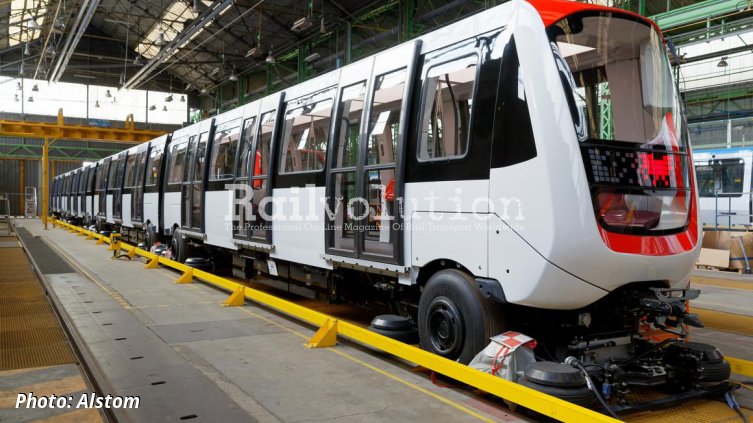Additional metros with the Urbalis Fluence control to the Lille metropolitan area
posted on 20th Jan 2025 13:22
On 20 January 2025, Alstom announced that it will supply the Métropole Européenne de Lille (MEL) with fifteen additional 52-metre long new-generation automated metro trainsets, at a cost of around 210 million EUR. These new trains will complete the first batch of 27 trains already ordered by the MEL (equipped with the Urbalis Fluence signalling and automated control system).
The vehicles in this new order will replace the old VAL-208 units from 2028 onwards. This order is part of a general policy to modernise the Lille metro network, with the aim of introducing new rolling stock and modifying the automated train control system, to improve transport services on Lines 1 and 2.
Based on Alstom’s rubber-tyred metro solutions, the new metros will offer greater comfort, improved accessibility and better passenger information. Each train will be able to accommodate up to 545 passengers and ease their flow thanks to its “boa” configuration (wide gangways and open circulation without separations between the four cars) which allows passengers to move from one end of the train to the other. The addition of those 15 new metros will give Line 1 a fleet exclusively made up of new-generation trains.
On board, passenger information will be enhanced by multimedia displays and screens located throughout the train. There will be areas dedicated to people with reduced mobility, and an integrated video protection system will contribute to passenger safety on board the trains and on the platforms.
The trains will be equipped with the new-generation Urbalis Fluence autopilot system, the first worldwide application of which is for the Métropole Européenne de Lille. The Lille metro network will remain the most frequent metro in the world, with a train running every 66 seconds during rush hours.
Six of Alstom’s sixteen sites in France are taking part in the project:
- Valenciennes-Petite Forêt, in charge of studies, design, train assembly, tests/validations and homologation,
- Le Creusot, for the bogies,
- Ornans, for the motors,
- Tarbes, for the powertrain equipment,
- Saint-Ouen, for automated systems and the development of Urbalis Fluence,
- Villeurbanne, for on-board computing and passenger information.

